What Is The Difference Between CBD, CBG & CBN?
CBD vs. CBG vs. CBN: Understanding the Differences, Benefits, and How They’re Used in Products
Cannabinoids like CBD, CBG, and CBN are gaining traction for their potential wellness benefits, but what sets them apart? As hemp-derived products become more accessible through online dispensaries, understanding these compounds can help you choose the right option for your needs. In this article, we’ll break down the specific differences between CBD, CBG, and CBN, explore their individual and synergistic benefits, and explain how they’re incorporated into popular products like vapes, gummies, and tincture oils. Whether you’re shopping at an e-commerce dispensary or curious about cannabinoids, this guide has you covered.
What Are CBD, CBG, and CBN? Key Differences
Cannabinoids are naturally occurring compounds in cannabis plants that interact with the body’s endocannabinoid system (ECS), which regulates mood, sleep, pain, and more. While CBD (cannabidiol), CBG (cannabigerol), and CBN (cannabinol) share this trait, their chemical structures, effects, and roles differ significantly.
- CBD: The most well-known cannabinoid, CBD is non-psychoactive, meaning it doesn’t cause a “high.” It’s derived from hemp and is celebrated for its versatility in addressing stress, inflammation, and pain.
- CBG: Known as the “mother cannabinoid,” CBG is the precursor to CBD and THC. It’s also non-psychoactive and present in lower concentrations in cannabis, making it rarer and often pricier. CBG is studied for its potential neuroprotective and anti-inflammatory properties.
- CBN: A mildly psychoactive cannabinoid, CBN forms when THC degrades through exposure to light or air. It’s less potent than THC but is gaining attention for its sedative effects, often linked to sleep support.
Chemical and Functional Differences
- CBD: Interacts indirectly with ECS receptors (CB1 and CB2), modulating serotonin and pain pathways. It’s widely used for general wellness.
- CBG: Binds directly to CB1 and CB2 receptors, potentially offering stronger anti-inflammatory and neuroprotective effects. It’s considered more targeted than CBD.
- CBN: Primarily interacts with CB1 receptors, contributing to its sedative properties. It’s less versatile than CBD or CBG but shines in sleep-related applications.
Benefits of CBD, CBG, and CBN
Each cannabinoid offers unique benefits, and when combined, they may produce a synergistic effect known as the entourage effect, where cannabinoids enhance each other’s therapeutic potential.
CBD Benefits
- Stress and Anxiety Relief: CBD may reduce anxiety by influencing serotonin receptors, promoting calm without sedation.
- Pain and Inflammation: Its anti-inflammatory properties may help with chronic pain, arthritis, or muscle soreness.
- Seizure Management: FDA-approved Epidiolex uses CBD to treat certain epilepsy disorders.
- Sleep Support: CBD may improve sleep quality by addressing underlying stress or discomfort.
CBG Benefits
- Neuroprotection: Early studies suggest CBG may protect brain cells, potentially aiding conditions like Huntington’s disease or Parkinson’s.
- Anti-Inflammatory: CBG may reduce inflammation in conditions like inflammatory bowel disease (IBD).
- Antibacterial Properties: CBG shows promise in fighting bacterial infections, including MRSA.
- Mood Regulation: By interacting with ECS receptors, CBG may stabilize mood and reduce stress.
CBN Benefits
- Sleep Aid: CBN is often called the “sleepy cannabinoid” for its potential to promote restful sleep, especially for insomnia.
- Pain Relief: CBN may enhance pain relief by interacting with pain pathways in the ECS.
- Anti-Inflammatory: Like CBD and CBG, CBN may reduce inflammation, though its effects are less studied.
- Appetite Stimulation: CBN may boost appetite, similar to THC but with milder psychoactive effects.
Synergistic Benefits (Entourage Effect)
When combined, CBD, CBG, and CBN may amplify each other’s effects. For example:
- Enhanced Relaxation: CBD and CBN together may improve sleep quality by combining CBD’s stress relief with CBN’s sedative properties.
- Broader Pain Relief: CBG’s anti-inflammatory action paired with CBD’s pain modulation can target chronic pain more effectively.
- Mood and Focus: CBG’s neuroprotective qualities may complement CBD’s anxiety relief, promoting mental clarity and calm. Products labeled as “full-spectrum” or “broad-spectrum” often contain multiple cannabinoids to leverage this entourage effect, offering a more holistic wellness experience.
How CBD, CBG, and CBN Are Used in Products
These cannabinoids are incorporated into various products, making them easy to integrate into daily routines. Here’s how they’re used in vapes, gummies, and tincture oils, available through online dispensaries.
Vaping Products
- CBD Vapes: Popular for quick relief, CBD vaping oils deliver effects within minutes. They’re ideal for managing acute stress or pain flare-ups. Available in flavors like mint or citrus, CBD vape pens are discreet and portable.
- CBG Vapes: Less common but growing in popularity, CBG vape oils are used for inflammation or focus. They’re often blended with CBD for a balanced effect.
- CBN Vapes: CBN vaping products are marketed for relaxation and sleep. Users might vape CBN in the evening to unwind. These are often combined with CBD or CBG for synergy.
- Full-Spectrum Vapes: Many vape cartridges contain a mix of CBD, CBG, and CBN to maximize the entourage effect, offering a blend of relaxation, pain relief, and focus.
Gummies
- CBD Gummies: These are a tasty, discreet way to consume CBD, with effects kicking in within 30–60 minutes. They’re popular for daily stress management or mild pain relief, with doses ranging from 10–50 mg per gummy.
- CBG Gummies: CBG gummies are rarer but used for inflammation or mood support. They’re often paired with CBD in products for a balanced effect.
- CBN Gummies: Marketed as sleep aids, CBN gummies are taken 1–2 hours before bed to promote restful sleep. They may include melatonin for added effect.
- Mixed Cannabinoid Gummies: Many brands offer gummies with CBD, CBG, and CBN for synergistic benefits, ideal for overall wellness or targeted relief.
Tincture Oils
- CBD Tinctures: Taken sublingually (under the tongue), CBD oils offer fast absorption (15–30 minutes) for stress, pain, or sleep support. They come in various strengths (e.g., 500–3000 mg per bottle).
- CBG Tinctures: CBG oils are used for inflammation or neuroprotection, often blended with CBD for broader effects. They’re less common but available through specialized dispensaries.
- CBN Tinctures: CBN oils are popular for nighttime use, helping with insomnia or relaxation. They’re often combined with CBD or melatonin.
- Full-Spectrum Tinctures: These oils contain a mix of CBD, CBG, CBN, and trace amounts of other cannabinoids, maximizing the entourage effect for comprehensive wellness.
Buying CBD, CBG, and CBN Products from Online Dispensaries
Thanks to the 2018 Farm Bill, hemp-derived products with less than 0.3% Delta-9 THC are legal federally in the U.S., making online dispensaries a convenient way to purchase CBD, CBG, and CBN products. Here’s what you need to know:
- Accessibility: Reputable e-commerce dispensaries like Hemp Bombs, CBDistillery, or Lazarus Naturals offer a wide range of vapes, gummies, and tinctures. They ship to most U.S. states where hemp products are legal.
- Product Variety: You can find single-cannabinoid products (e.g., pure CBD gummies) or full-spectrum blends with CBD, CBG, and CBN for synergistic effects.
- Quality Assurance: Look for dispensaries that provide third-party lab reports to verify cannabinoid content and ensure products are free of contaminants like pesticides or heavy metals.
- Legality: Check your state’s laws, as some restrict hemp-derived products despite federal legality. Most online dispensaries list state-specific restrictions.
- Tips for Buying: Choose products with clear dosing information (e.g., mg of CBD/CBG/CBN per serving). Start with low doses, especially for CBN, due to its mild psychoactive effects.
How to Choose the Right Product
- For Stress/Anxiety: CBD gummies or tinctures are great for daily use; add CBG for extra mood support.
- For Sleep: CBN gummies or tinctures, possibly with CBD, are ideal for nighttime routines.
- For Pain/Inflammation: CBG vapes or full-spectrum tinctures with CBD and CBG offer targeted relief.
- For General Wellness: Full-spectrum products with CBD, CBG, and CBN maximize the entourage effect.
Safety and Considerations
While CBD, CBG, and CBN are generally well-tolerated, start with low doses to assess your body’s response. Side effects may include drowsiness, dry mouth, or mild dizziness. Consult a doctor if you’re on medications, as cannabinoids can interact with certain drugs (e.g., blood thinners). Research on CBG and CBN is still emerging, so rely on reputable sources and lab-tested products from online dispensaries.
Conclusion
CBD, CBG, and CBN each bring unique benefits to the table, from stress relief and pain management to sleep support and neuroprotection. Whether you prefer vapes for fast effects, gummies for convenience, or tincture oils for precise dosing, these cannabinoids are widely available through e-commerce dispensaries. By understanding their differences and synergistic potential, you can tailor your wellness routine to your needs. Ready to explore? Visit a trusted online dispensary to find high-quality CBD, CBG, and CBN products today.

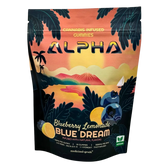

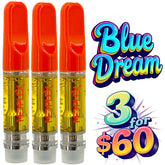

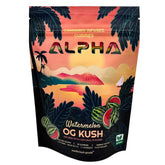
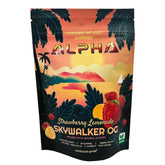
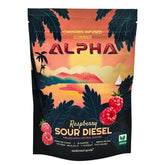
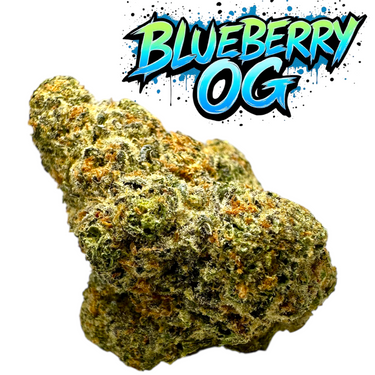


2 Comments
swl915
edesvg
Leave a comment
All blog comments are checked prior to publishing